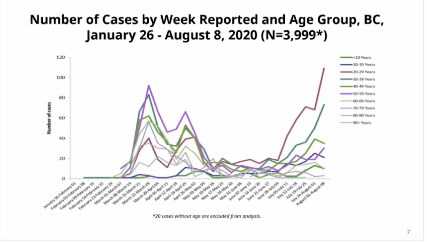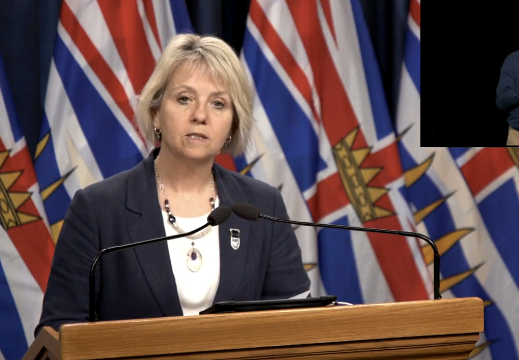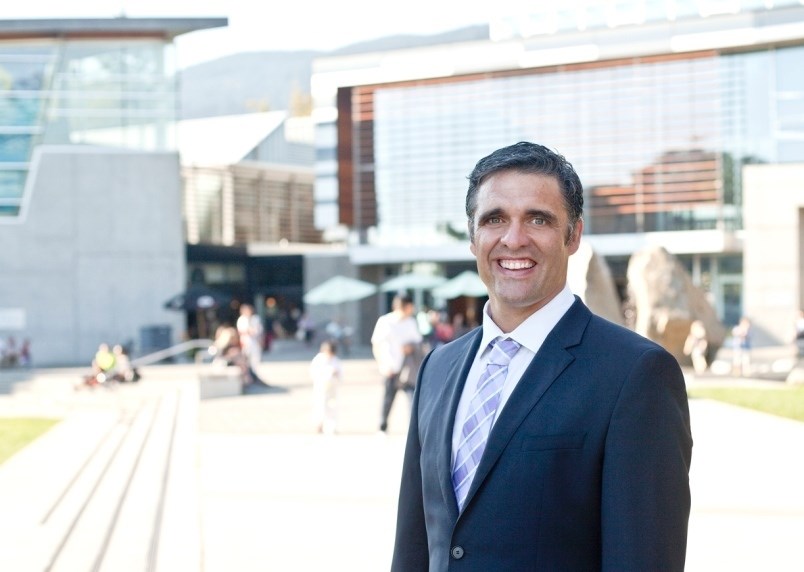A West Vancouver councillor is calling for nightclubs, bars and restaurants to be policed more stringently and even – as a last resort – temporarily shut down, in light of the increasing numbers of COVID-19 in the province.
West Vancouver Coun. Craig Cameron said he thinks the moves should be considered in light of B.C.’s uptick in COVID-19 cases – many of them among young people in their 20s who have spread the virus as they’ve socialized in the Lower Mainland.
B.C. reported 78 new cases of COVID-19 on Thursday, as well as 85 new cases on Wednesday. Many of the more than 570 active cases in the province are people in their 20s and 30s.
“We were dong very well . . . up until recently. Numbers are trending in decidedly the wrong direction,” said Cameron, who raised the issue on social media.
“What we’re doing now isn’t working. We have to look at what we're doing . . . whether rules need to be stricter, whether certain operators need to be policed more strictly, or as a last resort, whether some of them need to be closed for a time until we get the numbers back down,” he said.
Cameron acknowledges it would be difficult to say which restaurants and bars should be targeted, and added he’s not calling for a blanket shut down. But he said he’s been disconcerted to see downtown nightclubs, pubs and even two strip bars on the list of places where the public may have been exposed to the virus.
“I couldn’t believe they were even open,” he added of the Vancouver strip clubs.
“Anytime you get young, single people and alcohol together, you’re probably not going to have a great deal of social distancing,” added Cameron. “We have to be realistic.”
“Are we prioritizing partying over public health?” he said. “I don’t see that as a valid trade-off.”

But Health Minister Adrian Dix and Dr. Bonnie Henry, B.C.’s medical health officer, say restaurants and bars aren’t the problem.
Dix said restaurants and bars actually haven’t been recent sources of outbreaks.
“In most public facilities, in which you count restaurants, there have been relatively few cases,” he said. Usually when restaurants or bars are added to the list of potential public exposures, it’s because someone in the public who has contracted the virus has been at that establishment – not because they got the virus there, he said.
A much bigger problem has been private parties, said Dix.
“And those are much more challenging to deal with, because there's no WorkSafe, there's no COVID plan.”
Henry said Thursday that after some early problems were identified, public health officials put new regulations in place to ensure people aren’t table-hopping between groups at restaurants. There is also no dancing allowed in nightclubs, which have had to transition to more of a lounge atmosphere.
“We have found places where there plans are inadequate and those places are shut down until such time as the appropriate plans are put in place,” said Henry, adding the nightclub industry has an interest in following the rules so that they will be allowed to stay open.
“We are not at the point where we feel that we need to shut the entire industry down,” she said.
Ian Tostenson, president of the B.C. Restaurant and Food Services Association, called Cameron’s comments irresponsible.
“I think he’s misinformed,” said Tostenson, adding gatherings of young people at private parties have been driving up the COVID-19 infection numbers.
“Restaurants and pubs have gone to extraordinary lengths,” to play by the rules, he said.
“The protocols are really strict for people working in restaurants.”
While an expansion of patios has helped, most restaurants are operating at 50 per cent capacity – and some much lower than that. “Most restaurants aren’t making a lot of money,” he said.
“It’s an industry of 200,000 people. You've got a massive economic effect.”

Tostenson said his association is happy to call out any restaurant or bar disregarding public health rules. “If they’re not taking this seriously, they shouldn’t be operating.”
Cameron said he’d like public health to take a firmer hand on private parties too.
Henry said Thursday that large parties involving overlapping groups of young people in the Lower Mainland have been the main driver of recent infections, which have risen sharply among people aged 20 to 29 in B.C.
“I do think that the public health authorities have taken a rather non coercive approach to this problem so far,” said Cameron. “I do think they need to look at charging some people who have massive house parties to make an example of that, because right now, there's a certain segment of the population that doesn't believe COVID is a problem and isn’t interested in following the rules.”
Dix said Thursday that those hosting private events can expect to see a stepped up presence of local health officers from now on. And if people aren’t following the rules, “consequences will follow,” he said.



